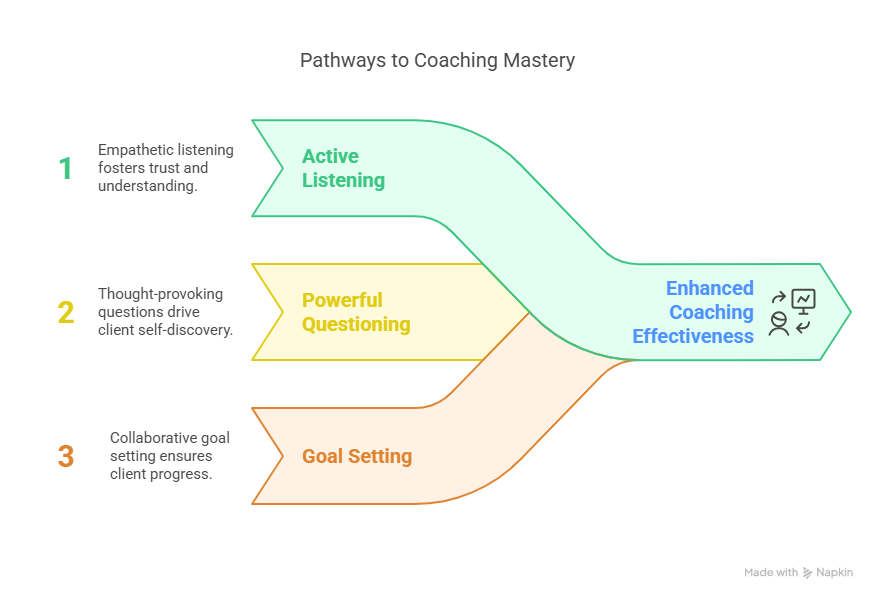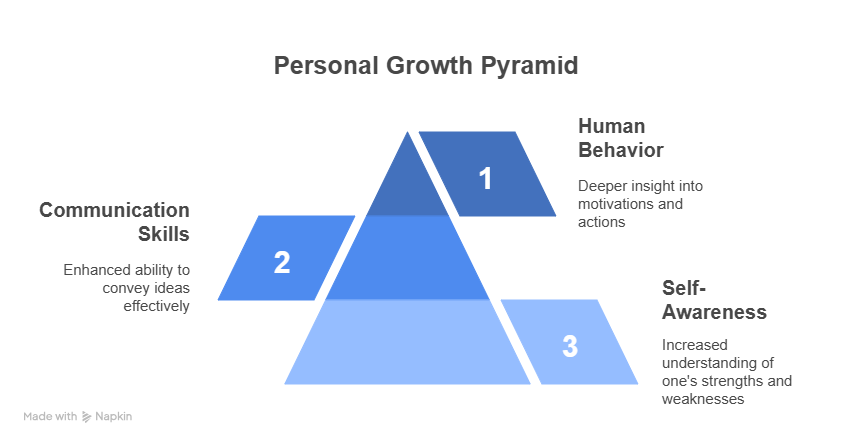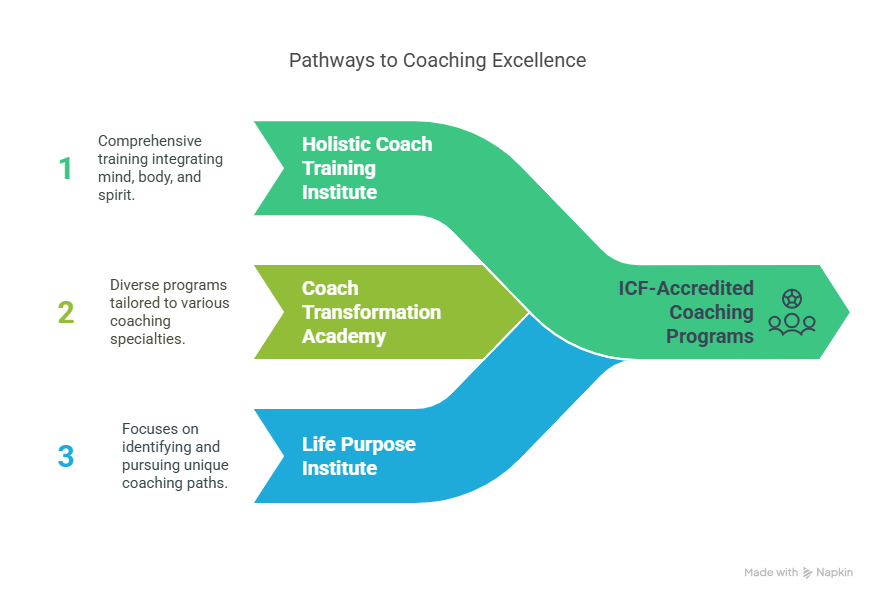Is an ICF-Accredited Holistic Life Coach Certification Worth It?
In today's evolving wellness landscape, holistic life coaching has emerged as a transformative profession. As individuals seek comprehensive approaches to personal development, the demand for qualified coaches has surged. Central to establishing credibility in this field is obtaining certification from reputable organizations. Among these, the International Coaching Federation (ICF) stands out as a global benchmark for coaching excellence. This article delves into the value of pursuing an ICF-accredited holistic life coach certification, examining its significance, benefits, and return on investment.
Understanding ICF Accreditation
The International Coaching Federation (ICF) is a globally recognized body that sets rigorous standards for professional coaching. Established in 1995, the ICF aims to advance the coaching profession by setting high ethical standards, providing independent certification, and building a worldwide network of credentialed coaches.
What Does ICF Accreditation Entail?
ICF accreditation signifies that a coaching program meets the organization's stringent criteria, ensuring that coaches are well-equipped to provide high-quality services. The accreditation process evaluates programs based on:
Curriculum Quality: Ensuring comprehensive coverage of coaching competencies.
Trainer Qualifications: Assessing the experience and expertise of instructors.
Ethical Standards: Upholding a code of ethics that promotes integrity and professionalism.
By choosing an ICF-accredited program, aspiring coaches align themselves with a globally respected standard, enhancing their credibility and marketability.
Related Blog: The Ultimate Guide to Holistic Life Coach Certification in 2025
The Importance of ICF Standards in Holistic Coaching
Holistic life coaching encompasses various aspects of an individual's well-being, including mental, emotional, physical, and spiritual health. Given the breadth of this approach, adherence to established standards is crucial. Curious about how accredited programs compare? Check out our in-depth guide on Accredited vs Non-Accredited Holistic Life Coach Certifications to make an informed choice.
Ensuring Professionalism and Ethical Practice
ICF standards provide a framework that guides coaches in delivering services ethically and effectively. These standards encompass:
Core Competencies: Skills and behaviors essential for effective coaching.
Code of Ethics: Guidelines that ensure coaches act with integrity and respect.
By adhering to these standards, holistic life coaches can build trust with clients, fostering meaningful and transformative coaching relationships.
Enhancing Coaching Effectiveness
ICF-accredited programs emphasize the development of core competencies, such as active listening, powerful questioning, and goal setting. Mastery of these skills enables coaches to facilitate deeper client insights and promote sustainable change.
Related Blog: What to Look for in the Best Holistic Life Coach Certification Programs.
Employer and Client Perception of ICF Accreditation
In the competitive coaching industry, credentials play a pivotal role in distinguishing professionals.
Employer Recognition
Organizations increasingly seek coaches with ICF credentials, recognizing the rigorous training and ethical standards associated with the certification. This preference is especially prevalent in corporate settings, where coaching is utilized for leadership development and employee well-being.
Client Trust and Confidence
Clients often view ICF certification as a mark of quality and professionalism. Knowing that a coach has undergone comprehensive training and adheres to ethical guidelines instills confidence, making clients more likely to engage in coaching services.
Evaluating the Return on Investment (ROI)
Pursuing an ICF-accredited holistic life coach certification involves a significant investment of time and resources. However, the potential returns can be substantial.
Financial Benefits
Certified coaches often command higher fees due to their recognized expertise. Additionally, the credibility associated with ICF certification can lead to increased client referrals and opportunities in various sectors.
Career Advancement
ICF accreditation opens doors to diverse career paths, including:
Private Practice: Establishing a coaching business with a strong client base.
Corporate Coaching: Providing services within organizations to enhance employee performance.
Workshops and Seminars: Leading group sessions on personal development topics.
Related Blog: 7 Best Holistic Life Coaching Courses Online
Personal Growth
Beyond professional gains, the certification process fosters personal development. Coaches often report increased self-awareness, improved communication skills, and a deeper understanding of human behavior.
Comparing ICF-Accredited and Non-Accredited Programs
When selecting a coaching program, it's essential to consider the differences between ICF-accredited and non-accredited options.
Quality Assurance
ICF-accredited programs undergo rigorous evaluation, ensuring consistent quality and relevance. In contrast, non-accredited programs may lack standardized curricula, potentially compromising the depth and breadth of training.
Credential Recognition
ICF certification is globally recognized, enhancing a coach's credibility across various markets. Non-accredited certifications may not carry the same weight, potentially limiting career opportunities.
Networking Opportunities
ICF membership provides access to a vast network of professionals, offering opportunities for collaboration, mentorship, and continued learning.
Related Blog: How to Become a Holistic Life Coach: A Step-by-Step Roadmap
Choosing the Right ICF-Accredited Program
Selecting an appropriate program is crucial for a successful coaching career.
Considerations for Selection
Program Structure: Evaluate the curriculum to ensure it aligns with your coaching interests.
Delivery Method: Choose between in-person, online, or hybrid formats based on your learning preferences.
Support Services: Look for programs that offer mentorship, peer coaching, and ongoing support.
Notable ICF-Accredited Programs
Holistic Coach Training Institute: Offers comprehensive training with a focus on integrating mind, body, and spirit approaches.
Coach Transformation Academy: Provides a range of programs catering to different coaching niches.
Life Purpose Institute: Specializes in helping coaches identify and pursue their unique coaching paths.
Conclusion
Investing in an ICF-accredited holistic life coach certification is a strategic decision that can yield significant professional and personal rewards. The accreditation not only enhances credibility and marketability but also ensures adherence to high ethical and professional standards. As the demand for holistic coaching continues to grow, obtaining an ICF credential positions coaches for success in a dynamic and fulfilling field.
ANHCO is a leading provider of holistic life coach certification programs that align with the high standards set by the International Coaching Federation (ICF). Their curriculum is designed to develop well-rounded coaches who integrate emotional, spiritual, and mental well-being into their practice. With experienced mentors, practical training, and a supportive community, ANHCO empowers aspiring coaches to build meaningful, client-centered careers. Whether you're new to coaching or seeking ICF accreditation, ANHCO offers a trusted path to professional growth and transformation.
Start your journey with confidence—get your life coach certification through ANHCO’s ICF-aligned program.
FAQS
-
An ICF-accredited holistic life coach certification is a professional credential recognized by the International Coaching Federation (ICF). It signifies that a coaching program meets the ICF’s global standards for ethics, core competencies, and coach training. These certifications prepare coaches to guide clients in achieving mental, emotional, spiritual, and physical well-being.
-
ICF accreditation is important because it validates the quality and credibility of your coaching training. It shows clients and employers that you follow globally accepted coaching practices and uphold high ethical standards. This can increase your career opportunities, enhance client trust, and improve your coaching outcomes.
-
Holding an ICF-accredited certification can significantly boost your career opportunities. Many employers and organizations prefer or require ICF credentials. It also opens doors to higher-paying clients, corporate coaching roles, workshop facilitation, and speaking engagements.
-
Yes, the cost is often worth it due to the strong return on investment (ROI). ICF-certified coaches typically earn more and have greater credibility in the market. The certification also leads to long-term growth through increased client referrals, professional development, and personal transformation.
-
While it’s possible to get clients without ICF accreditation, having the credential gives you a competitive edge. Clients are more likely to trust and invest in coaches who are trained under recognized standards, especially in a saturated market where credibility matters.
-
To choose the right program, look for one that aligns with your coaching goals, offers comprehensive training, and provides support like mentorship and peer coaching. Consider factors like delivery method (online vs in-person), course length, and trainer experience. Always verify the program’s ICF accreditation status.





